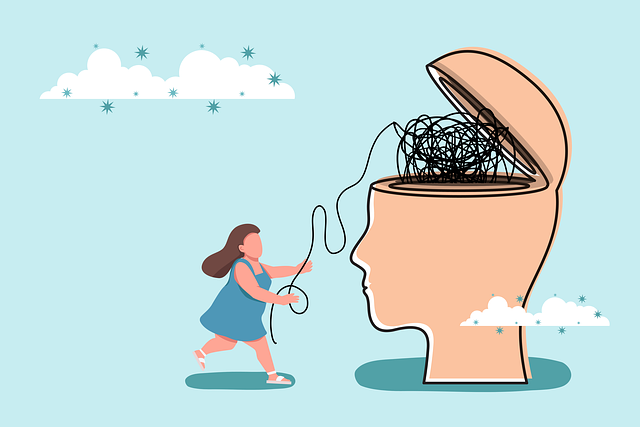Developing a marketing strategy for a mental wellness app targeting adults undergoing major life transitions (MLTs) requires understanding their unique challenges, such as career shifts and relationship changes. The app should offer accessible therapy tools, emotional healing processes, and self-awareness exercises to support users during these stressful times. By highlighting the app's ability to foster resilience and peace, the marketing can attract demographically diverse audiences facing MLTs. Effective segmentation and tailored messaging based on specific transitions, like career changes or relationship shifts, are key to engaging users and positioning the app as a valuable mental health resource.
In today’s fast-paced world, mental wellness is paramount, especially during major life transitions that adults often face—career shifts, marriage, parenthood, or retirement. These changes can bring unique mental health challenges. To tackle this, a strategic marketing approach for mental wellness apps is essential. By understanding the target audience and their specific needs, developers can craft compelling value propositions, such as personalized therapy sessions and community forums. A multi-channel marketing strategy utilizing digital platforms, influencers, and content marketing ensures visibility. Success is measured through KPIs like app downloads and user retention, allowing for continuous refinement based on audience insights. This holistic approach leverages SEO keywords like “Therapy for Adults Major Life Transitions” to connect users with the support they need.
- Understanding Your Target Audience: Adult Life Transitions
- – Identify common major life transitions experienced by adults (e.g., career change, marriage, parenthood, retirement)
- – Research mental health challenges associated with these transitions
- – Segment audience based on demographics, preferences, and needs
Understanding Your Target Audience: Adult Life Transitions

Understanding your target audience is a crucial step in developing an effective marketing strategy for a mental wellness app focused on therapy for adults experiencing major life transitions. This demographic often includes individuals navigating significant changes like career shifts, relationship endings, empty nest syndrome, or retirement—all of which can trigger feelings of stress, anxiety, and uncertainty. To resonate with this audience, your marketing efforts should speak directly to these transitional challenges and highlight how your app can provide support and guidance during these pivotal moments.
Highlighting the benefits of emotional healing processes, compassion cultivation practices, and self-awareness exercises tailored for life transitions can be particularly appealing. Emphasize how your app offers safe, accessible tools that foster resilience and help users cultivate a sense of peace and purpose amidst change. By addressing the specific needs of adults navigating life transitions, your marketing strategy can effectively attract and engage this target audience, positioning your app as a valuable companion during times of transformation.
– Identify common major life transitions experienced by adults (e.g., career change, marriage, parenthood, retirement)

Many adults experience significant life transitions that can impact their mental wellness. Common examples include career changes, such as transitioning to retirement or switching jobs, marriage and parenthood, which bring new responsibilities and expectations, and major life events like divorce or the loss of a loved one. These transitions can be stressful, leading to feelings of anxiety, depression, or uncertainty about the future.
Fortunately, there are mental health resources available to support adults navigating these challenges. Apps focused on therapy for adults offer accessible tools for managing stress, cultivating positive thinking, and developing emotional intelligence—crucial components of overall mental wellness. By leveraging these platforms, users can gain insights, learn coping mechanisms, and build resilience as they adapt to significant life changes.
– Research mental health challenges associated with these transitions

Understanding the mental health landscape is paramount when developing marketing strategies for wellness apps, especially those catering to adults navigating major life transitions. Research indicates that significant life changes, such as career shifts, relocation, or personal milestones, can significantly impact an individual’s psychological well-being. For instance, the stress of a new job might trigger anxiety and depression, while major life events like marriage or parenthood can bring about emotional challenges unique to each person’s experience.
By recognizing these potential mental health hurdles, app marketers can craft tailored messages that resonate with users facing specific transitions. Incorporating strategies for self-care practices and promoting positive thinking can be powerful tools in preventing and managing depression. Effective marketing would emphasize how the app provides accessible therapy options and coping mechanisms specifically designed to support individuals through these life changes, fostering a sense of resilience and emotional balance.
– Segment audience based on demographics, preferences, and needs

To develop an effective marketing strategy for a mental wellness app, it’s crucial to segment your audience based on demographics, preferences, and needs. Understanding who your target users are is key to tailoring your messaging and features. For instance, adults navigating major life transitions like career changes or relationship shifts may benefit from apps focusing on stress management and emotional support. By segmenting your audience, you can create targeted content such as a Mental Wellness Podcast Series Production that addresses specific challenges.
When marketing your app, highlight how it facilitates therapy for adults experiencing these transitions. Emphasize the app’s role in mood management and risk management planning for mental health professionals, ensuring users feel supported throughout their journey. This personalized approach will not only resonate with diverse user needs but also strengthen your brand’s reputation as a comprehensive solution for mental wellness.
In developing a marketing strategy for a mental wellness app focused on adults undergoing major life transitions, understanding the unique challenges associated with these pivotal moments is key. By segmenting audiences based on demographics and personal needs, marketers can tailor messaging that resonates deeply. Leveraging SEO keywords like “Therapy for Adults Major Life Transitions” ensures visibility to those actively seeking support. This targeted approach not only attracts users but also fosters a sense of community, promoting mental wellness during life’s great shifts.














